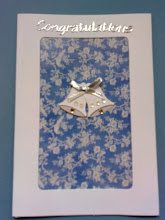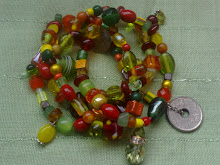I attended an interesting talk this weekend for the female family members of those people who are active in a local group of four or five masjids, so this would be trustees, board or committee members, imam’s, emirs or leaders of the masjids and generally people who were involved in the day to day running and of the masjid and in dawah work. Hubby is a trustee at the local masjid, so I was asked to come along.
Usually the talks we go to tend to focus on key subjects such as increasing iman, salah, dhikr and iklaq (the way we treat others around us). But these kind of meetings for just the ladies involved in the masjid are quite different. The talks are longer and the content of the talks assume certain things – for instance that all of the women pray and that they all cover (as our masjid community is quite conservative), so hijab and salah are not subjects that come up.
Instead the kinds of things that are discussed are concern for your local area – what are you doing to serve and connect that around you? Sacrifice – what can you give up in terms of time and effort for your faith and in particular dawah and how we as women can engage in this and support our menfolk.
I love that the men of the masjid understand the role of the women in the work of the masjid. They realize that a man can achieve so much more with a supportive woman behind him.
This weeks talk focused on two things: simplicity and community. The speaker, who was one of the very elderly, long-standing members of another mosque explained that simplicity is a sign of iman (or faith). That success was not about success in the material world, but success in the next world and that this didn’t come from big houses, cars or degrees. The speaker spent a lot of time describing the beautiful rewards that would be waiting for those who entered jannah – the clothes, the foods, the houses. He then reminded us that jannah was the place for all of our desires, not this world.
He encouraged us as women who were involved in our faith community to set the example and to aspire to live simply – through the way we dress, the way we maintain out homes and the one that resonated with me – the way we eat.
The other element that was discussed was how we had a responsibility to bring the community together. The speaker outlined four ways we could grow strong amongst ourselves and bring together and strengthen our communities:
1. To forgive those who have hurt us
2. To ask forgiveness of those whom we may have hurt
3. To bring others together – through the masjid, through study circles (halaqa’s) and our dawah work
4. To ourselves join with others that are doing these things.
I liked that the focus was on looking at ourselves before we start thinking its our job to reform anyone else. The speaker suggested that we see the good in others and that with the other eye we should see the weaknesses in ourselves. He also reminded us to clean our hearts regarding others and to let go of resentment or dislike that we may be holding on to.
Alhamdulillah it was a nice little iman refresher and a reminder that we should not be complacent and think we are doing enough. At two hours hubby said we got off lightly. The talk for the men is up to four hours and most of it involves admonitions and reminders about the proper way of doing dawah (I always tease him that he is going in for his annual telling off). The talk for the women was gentle and encouraging in comparison and I came away with some thoughts about simplicity and self-reflection.
Subscribe to:
Post Comments (Atom)































That sounds like a truly inspiring thought!! Nearly all the talks at masjids here are scary,nightmare inducing stuff - they're obsessed with describing hell!! Or else they're about women covering up - rarely ever about men controlling themselves. I'd much prefer to hear positive, inspiring talks like the one you mentioned.
ReplyDeleteIt was a lovely talk alhamdulillah.
DeleteI think there is a place for reminding people to fear Allah (SWT) and His punishment, but I think sometimes we need encouragement and when we hear the rewards of good deeds it makes us want to do them.